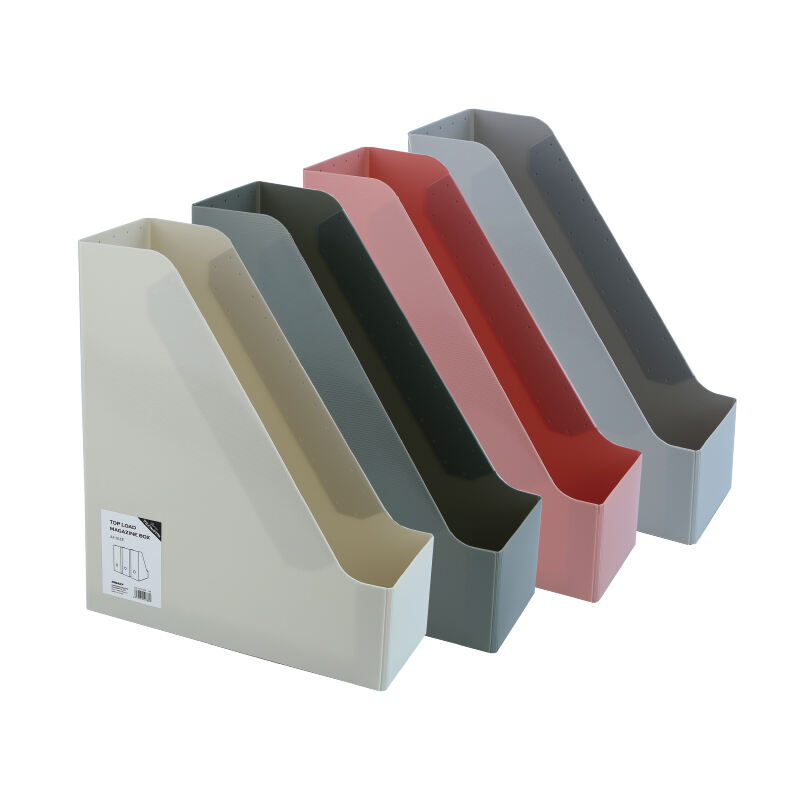Safeguarding Confidential Materials in Today's Digital Age
In an era where information security is paramount, protecting sensitive documents has become more crucial than ever. Document cases have emerged as a vital tool in maintaining the confidentiality and integrity of important papers, offering both physical protection and peace of mind for professionals across industries.
The modern business landscape demands robust solutions for safeguarding confidential information, and document cases have evolved to meet these sophisticated needs. From legal firms to healthcare institutions, organizations are increasingly turning to specialized document cases to ensure their sensitive materials remain secure during storage and transport.
Understanding Document Case Protection Features
Physical Security Elements
Modern document cases incorporate multiple layers of physical protection. High-grade materials such as reinforced polymers and metal alloys provide exceptional durability against external damage. The outer shell typically features water-resistant coatings, while impact-absorbing padding inside cushions contents from accidental drops or bumps.
Advanced locking mechanisms represent another crucial security feature. Many document cases now utilize combination locks, biometric scanners, or electronic keypads, offering significantly more protection than traditional key locks. These sophisticated systems ensure that only authorized personnel can access the contents.
Environmental Protection Capabilities
Beyond security from unauthorized access, document cases shield contents from environmental threats. Temperature-regulated interiors help prevent paper degradation, while moisture-resistant seals protect against humidity and water damage. Some premium document cases even incorporate UV-protective materials to prevent document fading.
Fire-resistant properties have become increasingly common in high-end document cases. These features can protect contents from extreme temperatures for specified periods, giving valuable time to retrieve important documents during emergencies. The best models maintain internal temperatures below paper's combustion point for up to several hours.
Professional Applications and Usage Scenarios
Legal Industry Implementation
Law firms regularly handle confidential client information that requires the utmost security. Document cases serve as mobile secure storage for court documents, contracts, and sensitive client files. Legal professionals particularly value document cases with tamper-evident features that can help maintain chain of custody requirements.
During court proceedings or client meetings, lawyers need quick access to documents while maintaining their security. Modern document cases facilitate this with organized compartments and rapid-access features that don't compromise security. Many models include specialized sections for different document types and sizes.
Healthcare Documentation Security
Medical facilities face strict regulations regarding patient information protection. Document cases designed for healthcare use often include antimicrobial surfaces and are built to meet HIPAA compliance standards. These specialized cases protect patient records during transfers between facilities or departments.
Healthcare administrators appreciate document cases with tracking capabilities, allowing them to monitor the location and handling of sensitive patient information. Some advanced models incorporate RFID technology or GPS tracking, providing real-time location data and access logs.
Advanced Security Features and Innovations
Digital Integration Capabilities
The latest document cases often combine physical and digital security measures. Smart locks can integrate with facility security systems, while built-in tracking devices enable remote monitoring. Some models feature electronic logging systems that record every access attempt, creating an audit trail for sensitive documents.
Bluetooth connectivity allows authorized users to receive instant notifications if their document case moves outside designated areas or experiences tampering attempts. These smart features provide an additional layer of security and peace of mind for professionals handling critical documents.
Customization and Scalability
Organizations can now customize document cases to meet specific security requirements. From adjustable compartments to specialized locking mechanisms, manufacturers offer various options to tailor protection levels. This flexibility allows businesses to scale their document security as needs evolve.
Modular designs enable the addition or removal of security features based on changing requirements. Companies can start with basic protection and upgrade to more sophisticated systems as their security needs grow, making document cases a cost-effective long-term investment.
Maintenance and Best Practices
Regular Security Checks
To ensure optimal protection, regular maintenance of document cases is essential. This includes checking seals, testing locking mechanisms, and inspecting for any signs of wear or damage. Organizations should establish routine inspection schedules and maintain detailed maintenance records.
Security features require periodic updates, particularly for cases with electronic components. Keeping firmware current and replacing batteries in electronic locks helps prevent security vulnerabilities. Regular cleaning of contact points ensures reliable operation of biometric scanners and electronic interfaces.
User Training and Protocols
Proper training ensures that staff members understand how to use document cases effectively. This includes proper handling techniques, security protocol adherence, and emergency procedures. Regular training sessions help maintain security awareness and proper usage habits.
Organizations should develop clear protocols for document case access and handling. These guidelines should cover authorization levels, transfer procedures, and incident reporting. Regular audits help ensure compliance with established security protocols.
Frequently Asked Questions
How long do document cases typically last?
High-quality document cases, when properly maintained, can last 5-10 years or more. The lifespan depends on usage frequency, environmental conditions, and maintenance practices. Regular inspection and proper care can significantly extend their serviceable life.
Can document cases protect against electronic theft?
Many modern document cases include RFID-blocking materials and electromagnetic shielding to protect against electronic scanning and data theft. Advanced models may also feature electronic jamming capabilities for additional protection against sophisticated scanning attempts.
What happens if the electronic locking system fails?
Quality document cases typically include backup access methods in case of electronic failure. This might include mechanical key overrides, emergency access codes, or manufacturer-supported recovery procedures. It's important to store backup access information securely but separately from the case itself.


